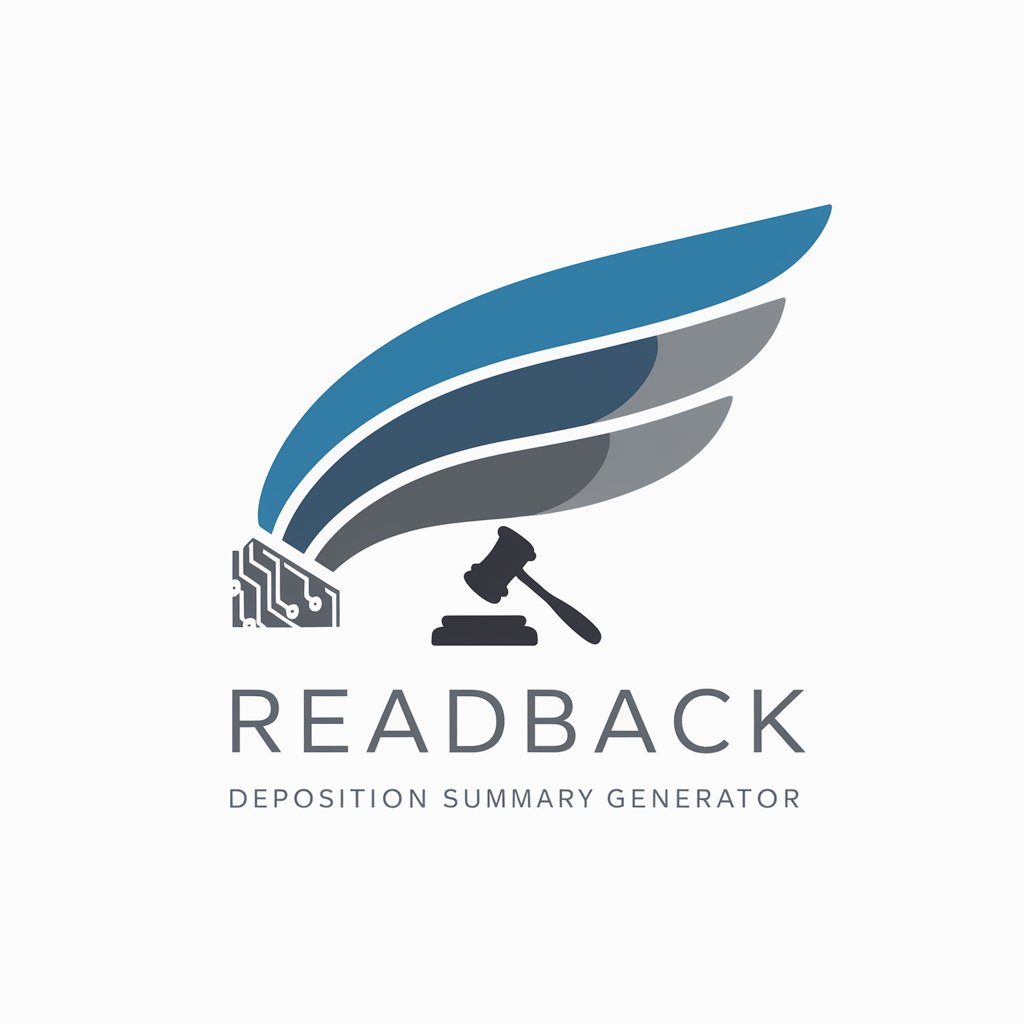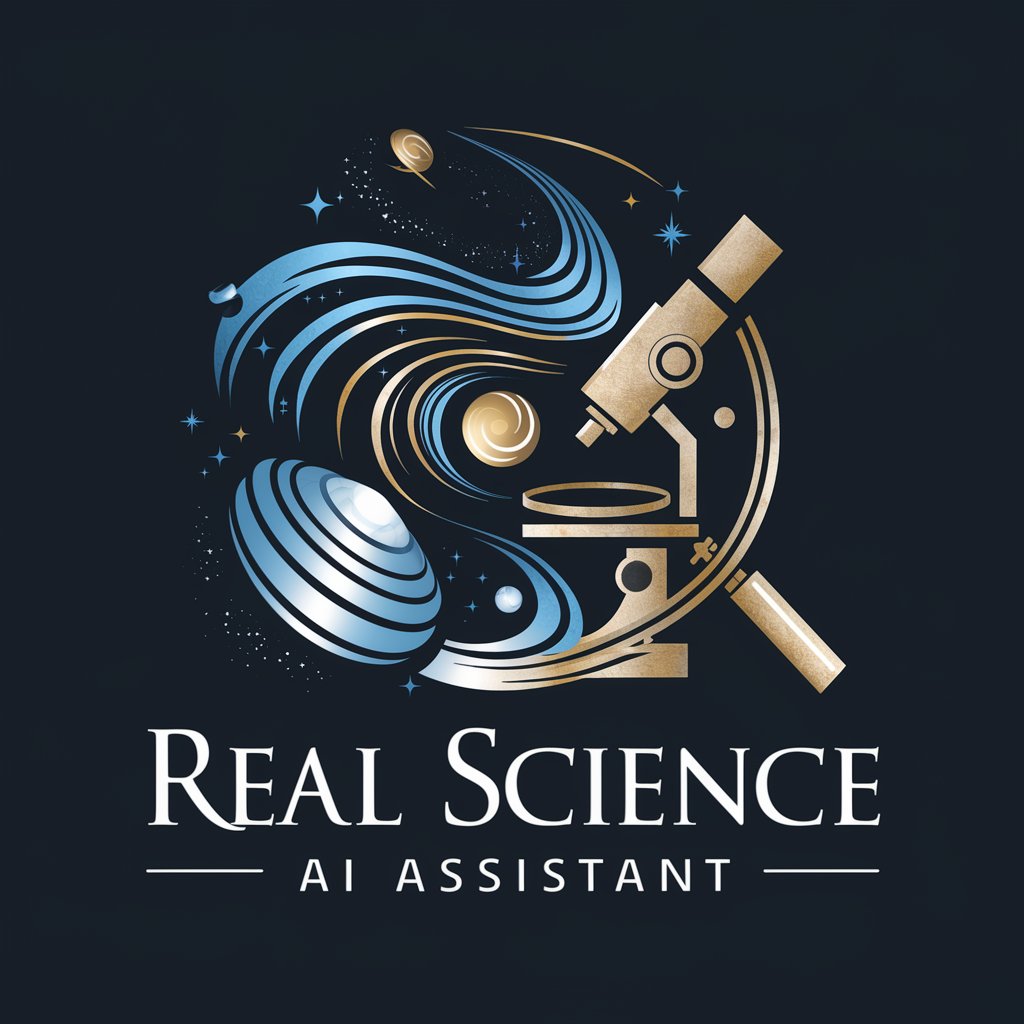11 GPTs for Evidence Review Powered by AI for Free of 2025
AI GPTs for Evidence Review are advanced tools utilizing Generative Pre-trained Transformers technology tailored for analyzing and synthesizing evidence from diverse sources. These tools are designed to assist in the systematic review of literature, legal documents, scientific research, and other forms of data, making them highly relevant for evidence-based fields. By leveraging GPTs, these solutions can understand, summarize, and evaluate vast amounts of information, providing customized insights relevant to specific topics or questions. This capability is particularly useful for supporting decision-making processes, ensuring comprehensive and informed analyses.
Top 10 GPTs for Evidence Review are: 护理科研Focus科研顾问,Deposition Summary Generator,The Skeptic,Forensic Insight,ColdCase Investigation,Crime and Mystery Solver,Medi Scholar,Expert Criminal Defense Attorney in the USA,Real Science,Shelter Care Hearing Prepping Assistant
护理科研Focus科研顾问
AI-powered assistance for nursing research

Deposition Summary Generator
Transforming Transcripts into Insights

The Skeptic
Empowering reason through AI-powered skepticism

Forensic Insight
AI-powered Forensic Science Assistant

ColdCase Investigation
Solve Crimes with AI-Powered Detective Work

Crime and Mystery Solver
Unravel mysteries with AI-powered analysis.

Medi Scholar
Empowering medical learning with AI.

Expert Criminal Defense Attorney in the USA
Empowering legal strategies with AI-driven insights.

Real Science
Unveiling the universe with AI-powered insights.

Shelter Care Hearing Prepping Assistant
Streamlining Shelter Care Hearings with AI

Forensic scientist -- GPT PUNKS #40
Decoding Forensics with AI Power

Key Attributes of Evidence Review AI
Evidence Review AI GPTs stand out for their adaptability, capable of handling tasks ranging from simple literature reviews to complex evidence synthesis. Key features include advanced natural language processing for understanding and generating human-like text, the ability to learn from new data, and specialized functionalities like automatic summarization, citation checking, and relevance scoring. Moreover, these tools often come with technical support for data analysis, web searching, image creation, and customization options, making them versatile assets in evidence review processes.
Who Benefits from Evidence Review AI
AI GPTs for Evidence Review are designed for a broad audience, including researchers, legal professionals, healthcare providers, and policy makers. They cater to both novices and experienced users, offering intuitive interfaces for those without coding skills, while also providing APIs and customization options for developers and technologically savvy users. This makes these tools accessible and beneficial for anyone involved in the thorough examination of data or documents within their respective fields.
Try Our other AI GPTs tools for Free
Profit Sharing
Discover how AI GPTs for Profit Sharing can revolutionize your approach to distributing profits with advanced data analysis, predictive modeling, and customizable solutions.
Earnings Distribution
Discover how AI GPTs revolutionize earnings distribution with precise analysis, forecasting, and global applicability, simplifying financial planning for professionals.
Cost Calculation
Discover AI-driven cost calculation tools powered by advanced GPT technology, designed to enhance accuracy and efficiency in financial planning and analysis.
Hemp Retail
Discover how AI GPTs revolutionize the hemp retail industry, from automating customer service to optimizing supply chains and ensuring regulatory compliance. A game-changer for businesses of all sizes.
Content Design
Explore AI GPTs for Content Design: revolutionary tools transforming content creation with AI-driven adaptability, efficiency, and creativity.
Safety Precaution
Discover how AI GPTs for Safety Precaution are revolutionizing risk management with predictive analytics, tailored safety protocols, and user-friendly interfaces for all expertise levels.
Expanding Horizons with Evidence Review AI
AI GPTs are revolutionizing evidence review by providing tailored solutions across different sectors, including healthcare, law, and scientific research. Their user-friendly interfaces and integration capabilities enable seamless adoption into existing workflows, enhancing both efficiency and accuracy. As these tools continue to evolve, they are set to offer even more sophisticated functionalities, further transforming evidence-based practices.
Frequently Asked Questions
What exactly is AI GPT for Evidence Review?
AI GPT for Evidence Review refers to the use of advanced AI technologies, specifically Generative Pre-trained Transformers, to automate and enhance the process of reviewing and analyzing evidence from various sources for informed decision-making.
How does AI GPT enhance the evidence review process?
It improves efficiency and accuracy by automating the extraction, synthesis, and analysis of relevant information, reducing the time and effort needed compared to traditional manual review processes.
Can non-technical users utilize these AI GPT tools effectively?
Yes, these tools are designed with user-friendly interfaces that require no programming knowledge, making them accessible to a wide range of users.
Are there customization options available for AI GPT tools in evidence review?
Absolutely, many AI GPT tools offer APIs and developer tools that allow for extensive customization and integration into existing systems or workflows, catering to users with technical expertise.
What kinds of data can AI GPTs analyze for evidence review?
These tools can analyze a wide range of data types, including but not limited to academic articles, legal documents, clinical trial reports, and policy papers.
How do AI GPTs ensure the quality and reliability of the evidence reviewed?
AI GPTs employ sophisticated algorithms and machine learning models to assess the credibility of sources, check citations, and ensure that the synthesized evidence is accurate and up-to-date.
Can AI GPTs handle evidence in multiple languages?
Yes, many of these tools are equipped with multilingual capabilities, allowing them to process and analyze evidence in various languages.
What are the potential limitations of using AI GPTs for evidence review?
While AI GPTs significantly enhance the evidence review process, potential limitations include the need for regular updates to keep up with new information and the possibility of missing nuanced information that requires human judgment.